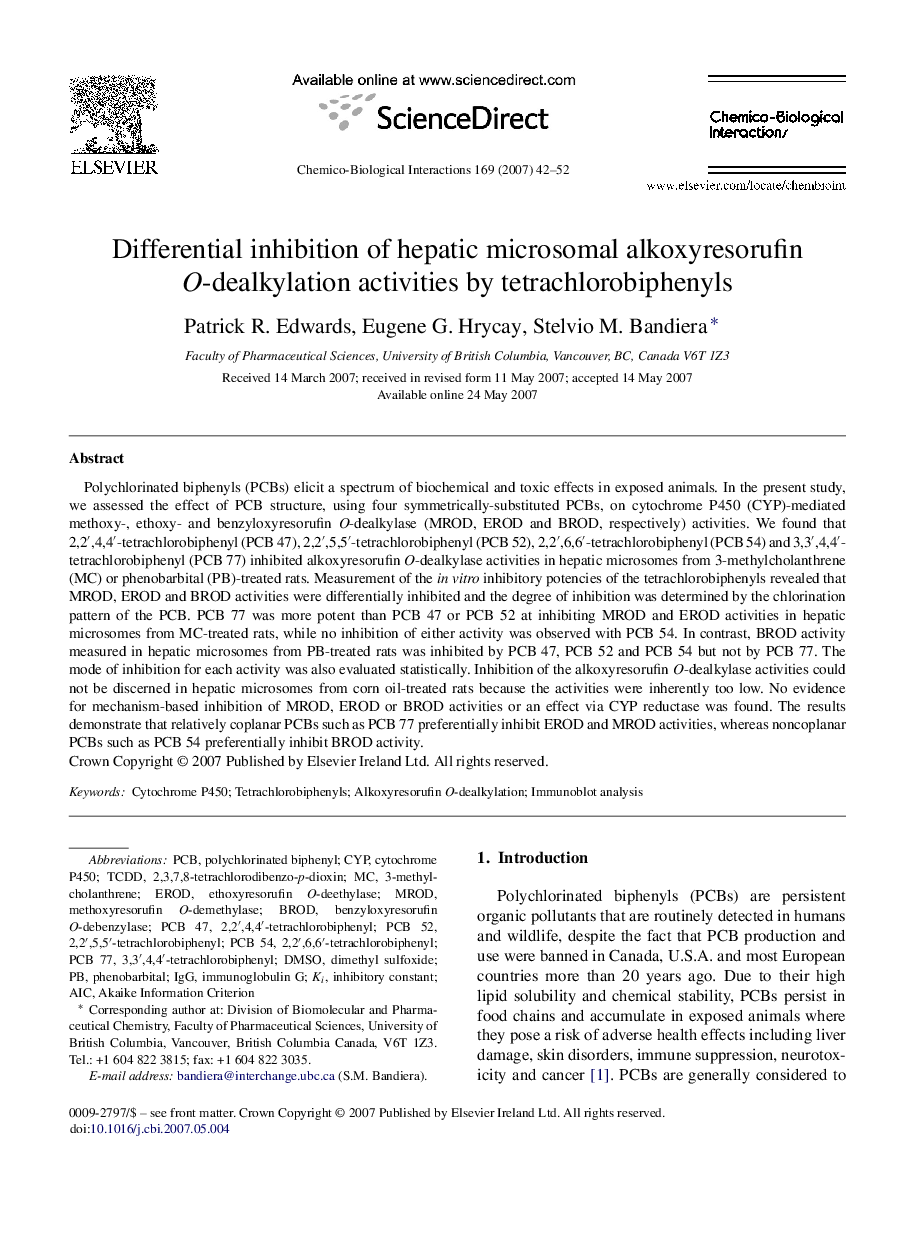| Article ID | Journal | Published Year | Pages | File Type |
|---|---|---|---|---|
| 2581841 | Chemico-Biological Interactions | 2007 | 11 Pages |
Polychlorinated biphenyls (PCBs) elicit a spectrum of biochemical and toxic effects in exposed animals. In the present study, we assessed the effect of PCB structure, using four symmetrically-substituted PCBs, on cytochrome P450 (CYP)-mediated methoxy-, ethoxy- and benzyloxyresorufin O-dealkylase (MROD, EROD and BROD, respectively) activities. We found that 2,2′,4,4′-tetrachlorobiphenyl (PCB 47), 2,2′,5,5′-tetrachlorobiphenyl (PCB 52), 2,2′,6,6′-tetrachlorobiphenyl (PCB 54) and 3,3′,4,4′-tetrachlorobiphenyl (PCB 77) inhibited alkoxyresorufin O-dealkylase activities in hepatic microsomes from 3-methylcholanthrene (MC) or phenobarbital (PB)-treated rats. Measurement of the in vitro inhibitory potencies of the tetrachlorobiphenyls revealed that MROD, EROD and BROD activities were differentially inhibited and the degree of inhibition was determined by the chlorination pattern of the PCB. PCB 77 was more potent than PCB 47 or PCB 52 at inhibiting MROD and EROD activities in hepatic microsomes from MC-treated rats, while no inhibition of either activity was observed with PCB 54. In contrast, BROD activity measured in hepatic microsomes from PB-treated rats was inhibited by PCB 47, PCB 52 and PCB 54 but not by PCB 77. The mode of inhibition for each activity was also evaluated statistically. Inhibition of the alkoxyresorufin O-dealkylase activities could not be discerned in hepatic microsomes from corn oil-treated rats because the activities were inherently too low. No evidence for mechanism-based inhibition of MROD, EROD or BROD activities or an effect via CYP reductase was found. The results demonstrate that relatively coplanar PCBs such as PCB 77 preferentially inhibit EROD and MROD activities, whereas noncoplanar PCBs such as PCB 54 preferentially inhibit BROD activity.
